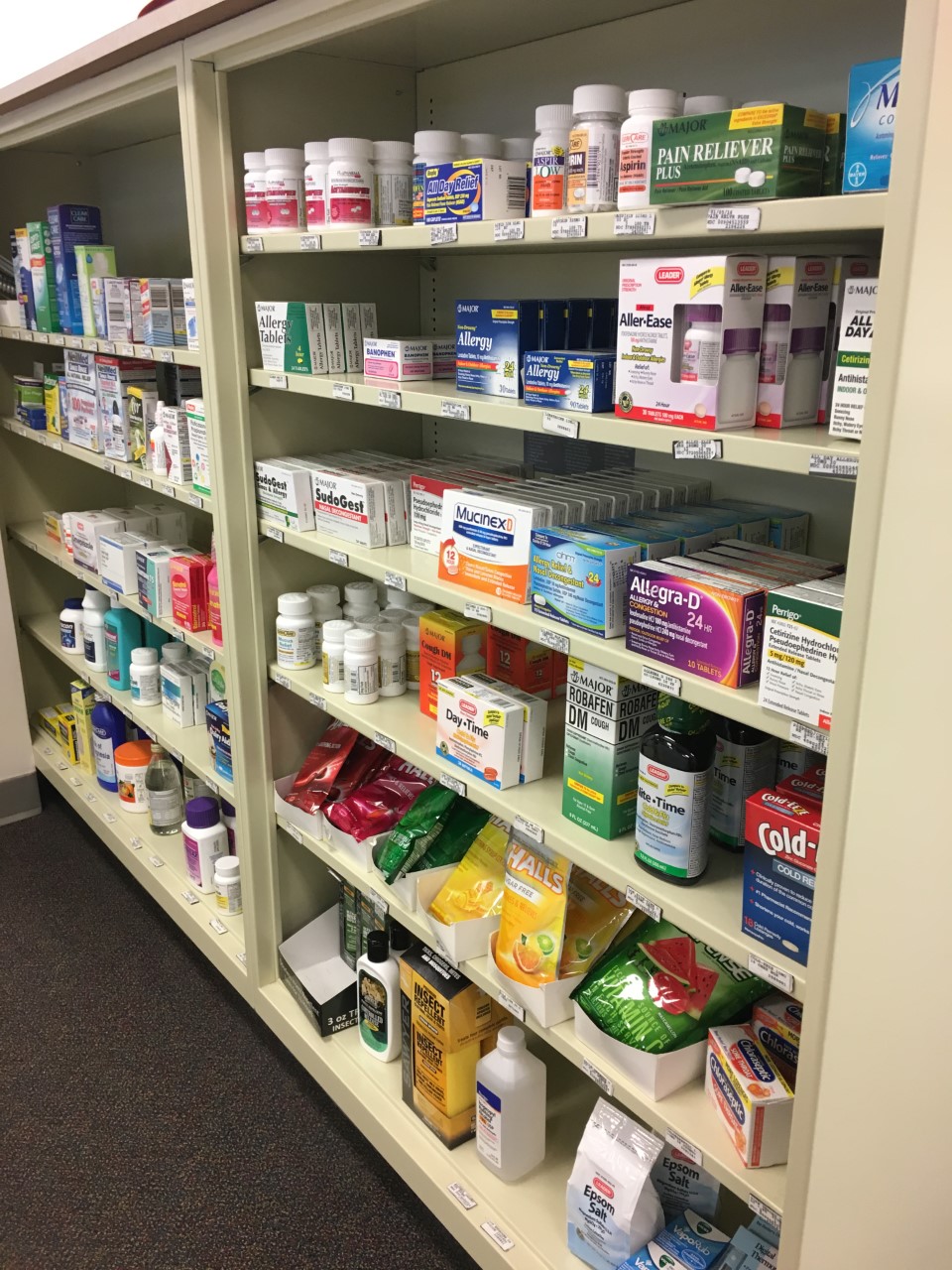
Your backpack is filled with all the class essentials: notebooks, textbooks, pencils, erasers and more. But does it also include a small stash of medicine to keep you healthy?
The University Health Center Pharmacy recommends keeping a first aid kit in your backpack in case you get sick or injured while you’re out and about. If you don’t have room for a full first aid kit, stick to the basics by stashing these five over-the-counter items in a backpack pocket:
1) Thermometer
Fevers are usually an early warning sign that you have an infection or common illness such as influenza, strep throat or COVID-19. You should take your temperature anytime you feel sick or “off.” Health center experts also recommend taking your temperature two times a day: once shortly after waking and again in the late afternoon or early evening. If you have a fever, stay home and monitor your symptoms. If you need help managing your symptoms, call the health center to make an appointment.
2) Cough drops
Whether you have allergies, the common cold, or something else, coughing is a fairly common symptom for most respiratory illnesses. One of the easiest ways to treat a cough is with cough drops. Although they won’t cure the cough, they can help you suppress the tickling sensation in the back of your throat and can ease a sore throat.
3) Pain reliever
The most common types are acetaminophen, aspirin and nonsteroidal anti-inflammatory drugs (NSAIDs). They can help you manage headaches and relieve pain. Watch out for side effects, read the warning labels and never take more than the recommended amount.
4) Antacid
If you frequently suffer from heartburn and indigestion, have these tablets nearby when eating. Most people benefit from taking them as soon as they have symptoms or think they will get them soon, like before or after eating a meal or going to bed.
5) Antibiotic ointment
Apply this to cuts or scrapes to prevent the growth of bacteria and help heal your wound. Clean and dry the affected area first, then apply the ointment. Place a bandage over it if needed.
Talk to a pharmacist before using any over-the-counter medicines like the ones mentioned above to make sure it is safe for your condition.
Remember the University Health Center Pharmacy offers over-the-counter medications like these at prices much cheaper than what you’ll find off campus. The pharmacy is open Monday and Tuesday from 8 a.m. to 5:30 p.m., Wednesday through Friday from 8 a.m. to 5 p.m. and Saturday from 9 a.m. to 12:30 p.m. The pharmacy also offers prescriptions, safe medication disposal and COVID-19 vaccines. Learn more.